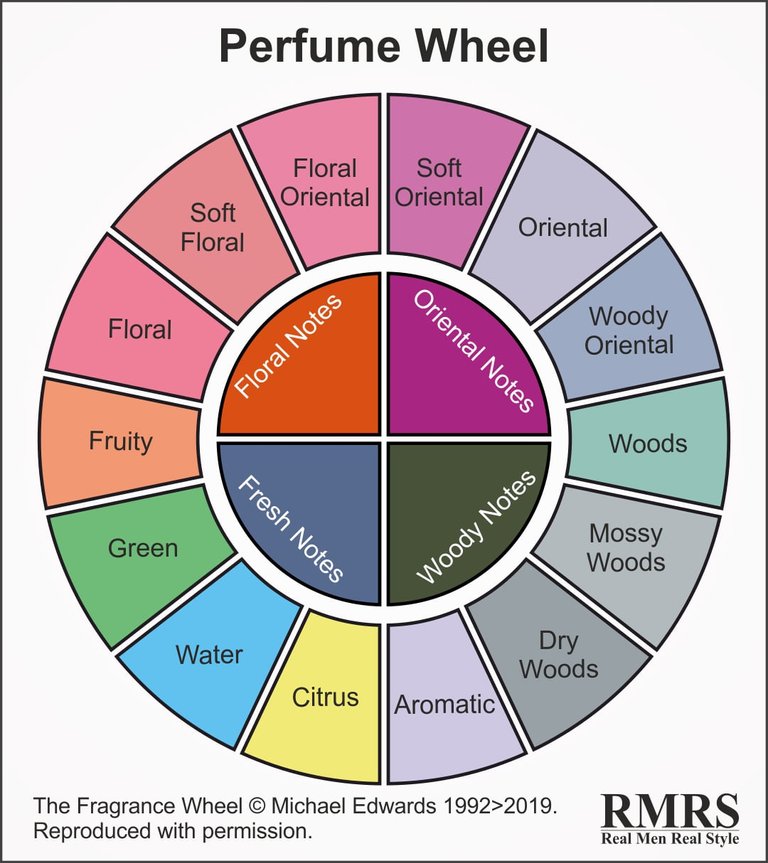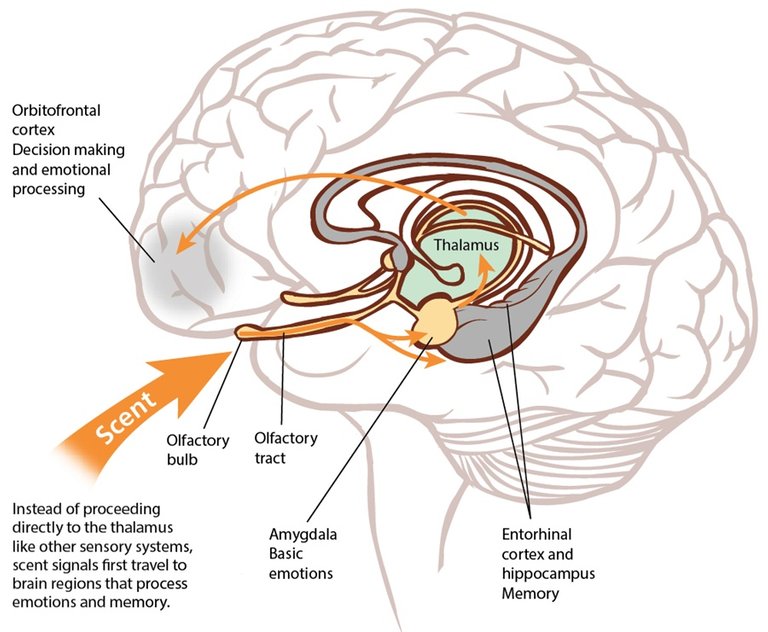Did You Know That Something Can Control & Affect How We Feel?

Smell has a significant impact on all of our lives. The nose can smell 100 out of the potpourri of 500 components that make up the special fragrance of the rose. Even the most experienced perfumer can only distinguish ten components. Lilac and fruit tea, moldy forest floor, perfume, or roast scent, we are constantly surrounded by smells. You can't stop smelling because we smell every breath, 20,000 times a day.
When life was only taking place in the darkness of the oceans, the creatures were able to smell long before they could see or hear. Even the protozoa in the primordial soup were oriented with the help of this chemical sense. For the earliest survival of our earliest ancestors on earth, the sense of smell was the most important guard, warning of deadly dangers such as lurking predators, conflagrations, or spoiled food. The nose of modern people also sounds the alarm when the gas pipe is broken, rotten fish, or the smell of fire. The sense of smell is the first meaning in life that develops in the embryo. This is the reason why newborns can easily recognize their mother, thanks to the nose.
Smelling is also a matter of taste because the subtleties of good food or fine wine are perceived almost exclusively in the nose. The volatile molecules reach the olfactory cells both through the nostrils and through the throat. With the tongue, we can only differentiate whether something tastes sweet, sour, salty, or bitter. This is the only way to distinguish a banana from a pickle. However, if you can smell, you know that enjoyment and quality of life consist of far more than four flavors.

Hidden link to the human soul
Smells suggest, promise, arouse attention and imagination, nourish fears, and hopes. They are the salt in the atmospheric soup. Fragrances have a direct connection to the soul, they act in the human brain directly on the limbic system, the place of feelings, instincts, and unconscious perception without going through the cerebrum responsible for a reason.
The processing of smells in the brain takes place first in the so-called limbic system, which is responsible for the feelings, and only then in the cerebral cortex, where conscious perception arises. Our first reaction to smells is unconscious, very quick, and, above all, emotional. Odors are always closely linked to the situation so that you cannot memorize a scent detached. But you quickly remember certain situations, even from a long time ago, when you come across the special smell again.
In the limbic system, all experiences made since birth plus the accompanying feelings and scents are stored and marked with so-called limbic markers. The markers combine experiences including the associated fragrance with the accompanying feelings such as pain, fear, pleasure, or joy. If this most sensual of our senses smell a known aroma, the memory of the associated feelings is awakened. In this way, scents influence our mood, generate lust, sympathy, or fear and control sexual behavior. New studies show that they even trigger the production of hormones. The sense of smell affects our lives on many levels, often without us being aware of it.
Perhaps this is the reason why the man, who is so proud of his reason, regarded his olfactory talents as low meaning for a long time, even science was not interested in it until recently. Olfactory research is still in its infancy. Science has only been dealing with the molecular processes by which we can differentiate between the scent of a rose and a full diaper, or why we get used to fragrances and after a short time no longer notice them. This sensory organ is not considered highly valued in science because of its ability to smell, because they haven't been able to do that much so far, that's frustrating.

The olfactory researchers found that the number of genes responsible for the sense of smell represents the largest gene family of humans. This speaks for the importance of the sense of smell for humans and against its classification as a lower meaning. These genes are distributed on almost all chromosomes, except on the Y chromosome. So men certainly can't smell anything that women can't smell. However, it was also shown that the number of active members of this superfamily in humans has decreased dramatically compared to that of the monkey.
Almost everything and living being in our environment exudes its smell and releases volatile molecules into the air that find their way into our noses. We don't notice most of them. To identify the characteristic of an aroma, so-called lead substances are usually sufficient. Those who smell geraniol will think of roses, the main substance for the smell of bananas is amyl acetate, and Skatol makes feces stink.
However, if our nose smells only the leading substance, such as with some artificial flavorings, it quickly realizes that something is missing. Once we have learned a fragrance, we can recognize it even if it lacks some of the information. The real good cup of coffee we recognize from a characteristic mixture of 15 of the 50 individual substances. Each fragrance has its very special recipient, which is built just for it. These protein molecules called receptors are found on the sensory hairs of the olfactory cells.
Fragrance triggers a signal to the brain
If the fragrance molecule docks onto the responsible recipient, the recipient sends the signal to the sensory cell via messenger substances. An electrical pulse is triggered there, amplified up to 1000 times, and sent to the brain as a signal cascade. From scented goods, such as leather or fabrics, to artificial flavors in food, to manipulation below the perception threshold, relieving fears, or stimulating buying behavior.

Controlling Feelings with Smells
The nose often decides what happens even if you mostly didn't notice it. Fragrances and smells have an effect because we unconsciously link them to our feelings. Most people mainly decide which shower gel or shampoo they use based on the scent.
Smells are directly connected to our soul life. They work in the brain without detours in the limbic system. This is the place where feelings, instincts and unconscious perceptions lie. That is why we react to smells unconsciously, quickly, and very emotionally.
Ways on how smells control our feelings
- Fragrances decide who we find attractive. To fall in love with someone, you have to be able to smell him or her. Better not apply too much deodorant and perfume on the next date. This only covers up the crucial smell.
- Smells can convey to our bodies. Something is wrong here! They warn us of dangers, for example, if we get sick of smelling spoiled food. Listen carefully to your body! And recognize warning signals, certain smells can trigger negative feelings such as fear or physical complaints such as headaches.
- Our brains always store odors linked to a specific situation. If we experience something beautiful, we perceive the associated fragrance as positive. Negative experiences smell bad. Remember that fragrances and memories are linked. Frequently ask yourself whether a smell is actually bad or only associated with unpleasant experiences.
- It is proven that smells can affect mood. Aromatherapy in particular works with fragrances and uses the effects of essential oils. Perfume also does something. The scent of citrus oil is refreshing, vanilla exudes sensuality.
- Who does not know that? It smells so pleasant in our favorite boutique even though we only wanted to look. Fragrances and smells often determined what we buy and when. Bear this in mind and when shopping, ask yourself, Do I really need this now or is my nose just tempting me to buy it?
how are you dear friend @juvyjabian good night
Excellent work, I loved all this information, I must admit that many of them were completely ignored, it is always good to learn something new
thank you very much, have a wonderful night
And most of the time, those ignored plays a significant role.